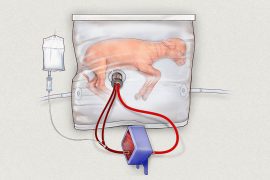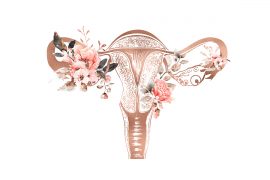For anxiety, the NICE guidelines recommended the 2-questions Generalized Anxiety Questionnaire (GAD-2):
Over the last 2 weeks, how often have you been bothered by the following problems:
- Feeling nervous, anxious, or on edge
- Not being able to stop or control worrying
For each question, answer: 0=Not at all; 1=several days; 2=more than half the days; 3=nearly every day
Notes: The score ranges from 0-6. If a woman scores 3 or more based on adding her score to question 1 and question 2, she should receive a follow-up appointment with a clinician who can conduct a more thorough assessment of her needs or be referred to a cognitive behaviour therapy program.
These tools are not perfect – none are! But, they are quite accurate and are brief enough to be used as a part of routine prenatal care.
The best part is that our research shows that 99% of pregnant women who had not been screened for prenatal anxiety or depression wanted to be. In fact, in follow-up interviews, women told us they wanted to be routinely screened for emotional health – just like they had their blood pressure checked.
Help for Pregnant Women with Anxiety, Depression, or Stress
Question: What type of help can I offer pregnant women so that they can get timely assistance?
Research shows that 95% of pregnant women with emotional health concerns experience mild- or moderate-degree symptoms.
- That means that the vast majority of women can be effectively helped through online venues, which are cheaper, more available, and readily accessed than face-to-face sessions (which may not be an option in smaller communities).
- The NICE guidelines suggest that there is enough evidence to recommend cognitive behaviour therapy (CBT) to pregnant women with mild or moderate symptoms.
Some excellent options for general, online CBT programs (not specific for pregnant women) are:
- ThisWayUp (https://thiswayup.org.au/). Costs $60 for 6-week access to online CBT programs that target depression or anxiety.
- My Compass (https://www.mycompass.org.au/). A free, personalised self-help online program that targets depression, anxiety or stress. Move through at your own pace. Plenty of great resources.
The last 5% of women who have more severe symptoms, and often co-existing challenges such as lack of support, interpersonal violence, or substance use are best served by a combination of multidisciplinary services that may require coordination between a psychiatrist, family physician, psychologist, and/or social worker.
Dr. Dawn Kingston, Canada’s leading expert on perinatal mental health and for over ten years, has been at the forefront of research on how to prevent postpartum depression. Her team has developed the HOPE App which is designed to significantly reduce prenatal anxiety and depression and directly support expectant mothers. They are studying it in a massive implementation study, one of the most ambitious projects of this type ever!
Follow Dr Dawn Kingston on:
Facebook || Twitter || Pinterest || Instagram || Medium || LinkedIN || PsychologyToday










